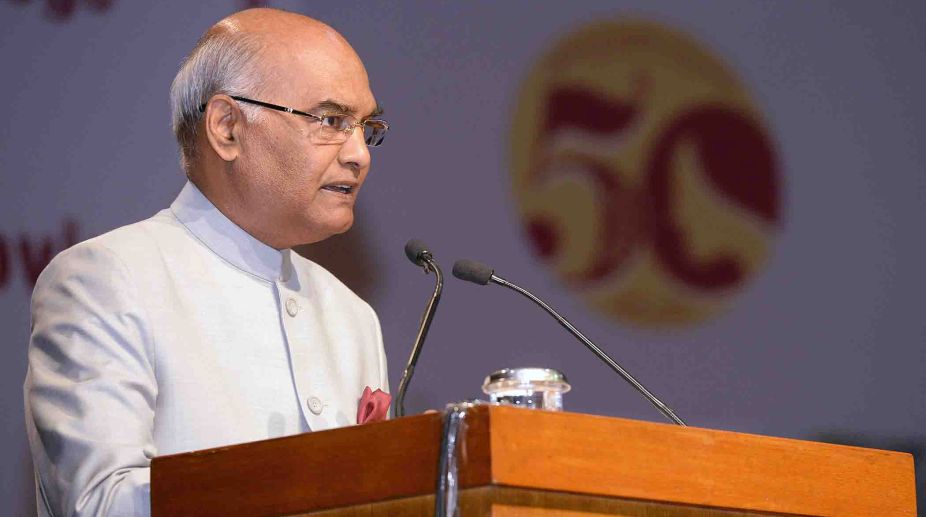President Ram Nath Kovind on Sunday said it was upon the higher judiciary to mentor and encourage the lower judiciary and urge them to conclude cases faster.
Addressing Constitution Day celebrations in the national capital, Kovind said to take the values of the Constitution to the very grassroots of society, standards of subordinate institutions must be raised to bring them at par with apex institutions.
“The Constitution is not just an abstract ideal. It has to be made meaningful to the lives of ordinary people in every street, every village and every mohalla of our country. It has to somehow connect with their everyday existence and make it more comfortable,” he said.
“Perhaps the greatest challenge is before the higher judiciary. It is upon the higher judiciary to mentor and encourage the lower judiciary,” he added.
“And it is for the High Courts to urge subordinate courts to be more efficient and conclude cases faster.”
Highlighting that the Constitution continues to be nation’s guiding light, Kovind said the Constituent Assembly comprised of men and women of unparalleled vision.
“They sought to draft a Constitution that was defined by a noble and expansive philosophy – rather than being a rigid document,” he said.
“At the heart of the constitutional project was trust – trust in each other, trust between institutions, trust in the goodness of fellow citizens, and trust in the wisdom of future generations,” he added.
“This sense of trust is inherent in constitutional governance. When the government trusts citizens to attest their documents themselves, it is in keeping with the spirit of the Constitution,” he said further.
Kovind said that framers of the Constitution realised that a Constitution, no matter how well written and how detailed, would have little meaning without the right people to implement it and to live by its values.
“When individuals and institutions ask what Constitution has done for them and how it has built their capacities – they must also consider what they have done to uphold the Constitution,” he said.
The Constitution of India was adopted on November 26, 1949 before it came into force on January 26, 1950.











